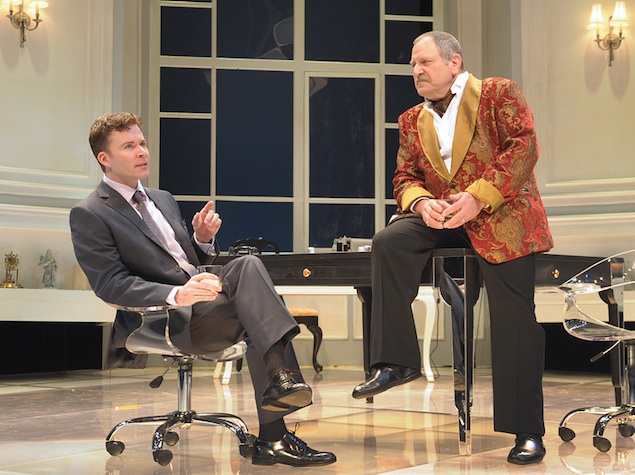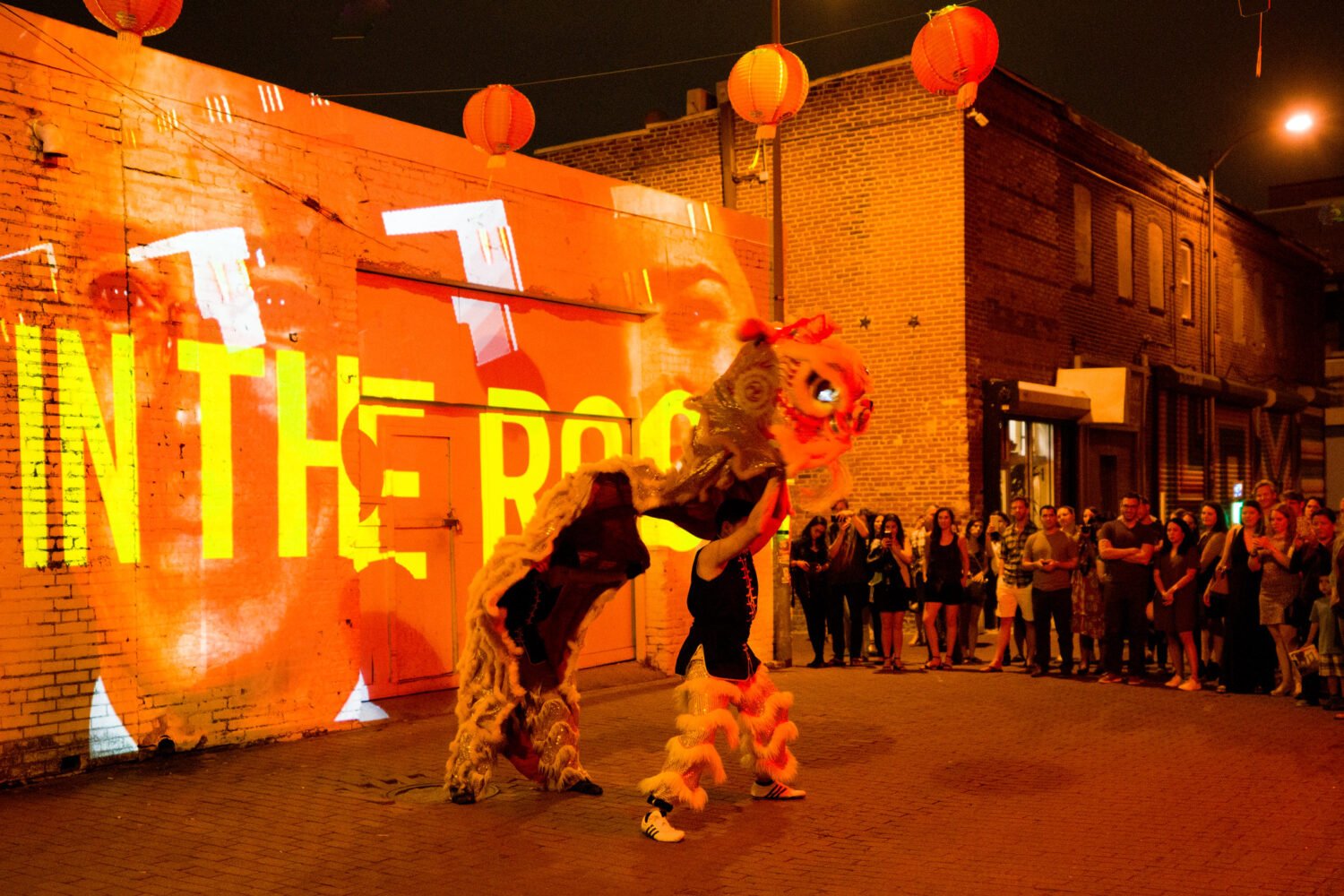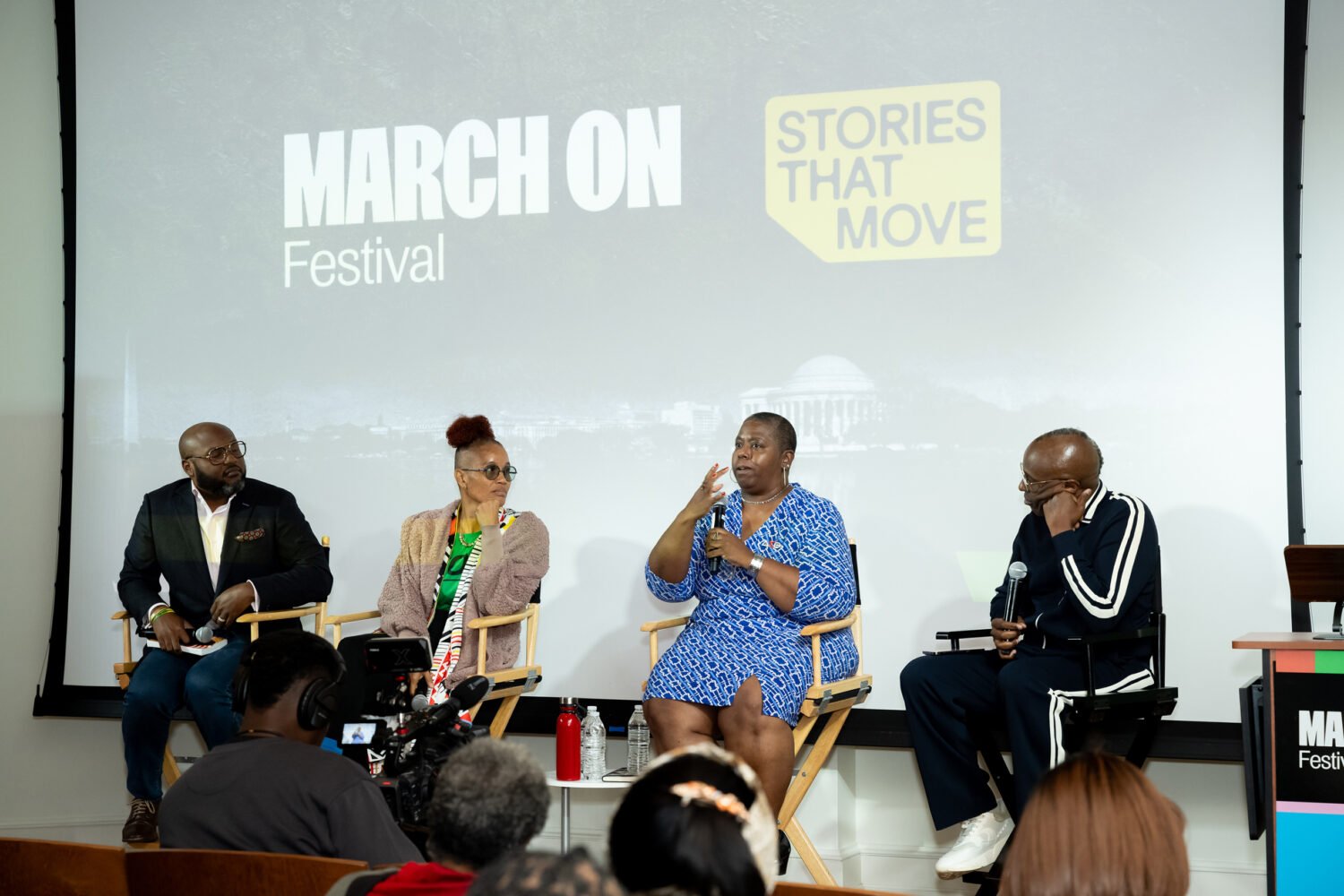
As soon you lay your eyes on the diamond-shaped set (designed by
Cristina Todesco) upon which
Sleuth unfolds at Olney Theatre—a shiny, sterile
great-room in a great house, done up in a possibly psychotic blend of
French provincial
and ultramodern—you know you’re watching the kind of theater
your parents and grandparents savored. And let us not forget
the red-and-gold smoking jacket worn by the owner of the
country manse, which he sports as he nibbles caviar and crackers
washed down with Champagne as Beethoven booms on the stereo.
Yes, we are in the land of the English-drawing-room mystery, turned slightly on its head in
Anthony Shaffer’s verbose but engaging 1970
psychological thriller about a genteel writer of mystery novels and the
faceoff he instigates
with his wife’s young boyfriend. The play was a hit in London
and then on Broadway, and is frequently revived. It has also
generated two film adaptations, the 1972 version of which
starred
Laurence Olivier and
Michael Caine. Thirty-five years later, Caine took on the older role opposite
Jude Law, in a version directed by
Kenneth Branagh with a screenplay by
Harold Pinter, no less. It didn’t much work, but Pinter and Branagh managed to take a very mainstream piece and make it deeply weird.
There’s nothing too weird about Olney’s
Sleuth, which runs through July 8. Outgoing longtime artistic director
Jim Petosa has staged it crisply, handsomely, and in a manner true to playwright Shaffer’s original intent—as a check-checkmate duel
between genteel age and blue-collar youth in which age aims to win by sheer superiority, not muscle.
Mystery novelist Andrew Wyke (Bob Ari) invites his wife’s lover, Milo Tindle (Jeffries Thaiss), to his country house for a
civilized chat between gents. The conversation turns rather quickly,
however, to money. Wyke
has concocted a scheme: He and Milo will stage a jewelry heist
in the house that will enable Milo to support Wyke’s wife in
the style to which she has become accustomed, but will also pay
Wyke reparations for his loss of a mate in the form of insurance
money. It doesn’t take much to convince Milo that this is a
fraud worth committing, and it’s too late to stop once he realizes
that Wyke has far more dubious plans a’brewing.
The play hits its pinnacle when Wyke reveals his class
snobbery, ethnic and religious prejudice, and reactionary view of the
welfare state England had become by 1970 (when the country’s
rock stars were moving here to avoid being taxed at 70 or 80
percent). That’s when the dialogue really cooks and when his
scorn and condescension rain dramatically down on Milo, a struggling
travel agent who’s the half-Jewish son of a watch repair man.
The life-or-death games of cat-and-mouse, each one played with
stakes a bit higher than the last, are fun, too, but they’re
formulaic. Wyke’s venom is not.
Casting of the leads (there are three supporting roles, as well) is crucial in
Sleuth, and the pairing of Ari and Thaiss, while
solid, doesn’t crackle. Ari suits the play best: His Wyke is a cagey,
pompous fellow
with a prosperous paunch, accustomed to getting his way. He
shifts from jovial to vicious to solicitous on a sixpence. Thaiss,
an Olney regular who has given one fine performance there after
another (most recently in
The 39 Steps), is slightly miscast as Milo. The younger man needs to project a bit more of the street fighter as he schemes to save himself
from Wyke’s trickery and get some revenge, too; instead, he feels too benign and passive.
Then again,
Sleuth is not merely a talky, occasionally tedious old-fashioned play. It is also a well-oiled theatrical machine: Wind it up and
watch it go. Olney’s production, even with its imperfections, will keep you spinning along with it right to the end.
Sleuth
is at Olney Theatre Center through July 8. Running time is about two hours and 15 minutes, including intermission. Tickets
($26 to $54) are available via Olney’s website.


















